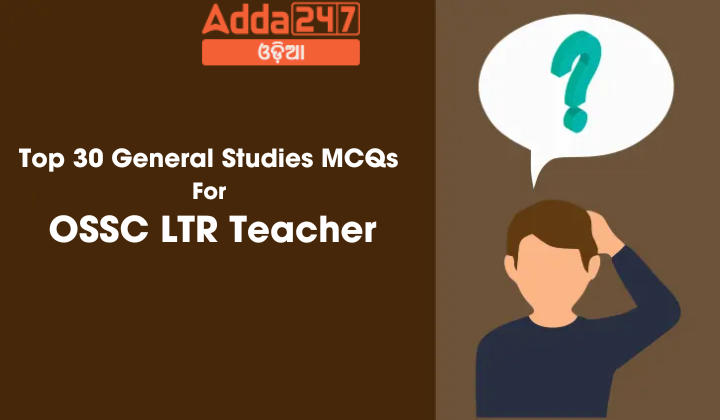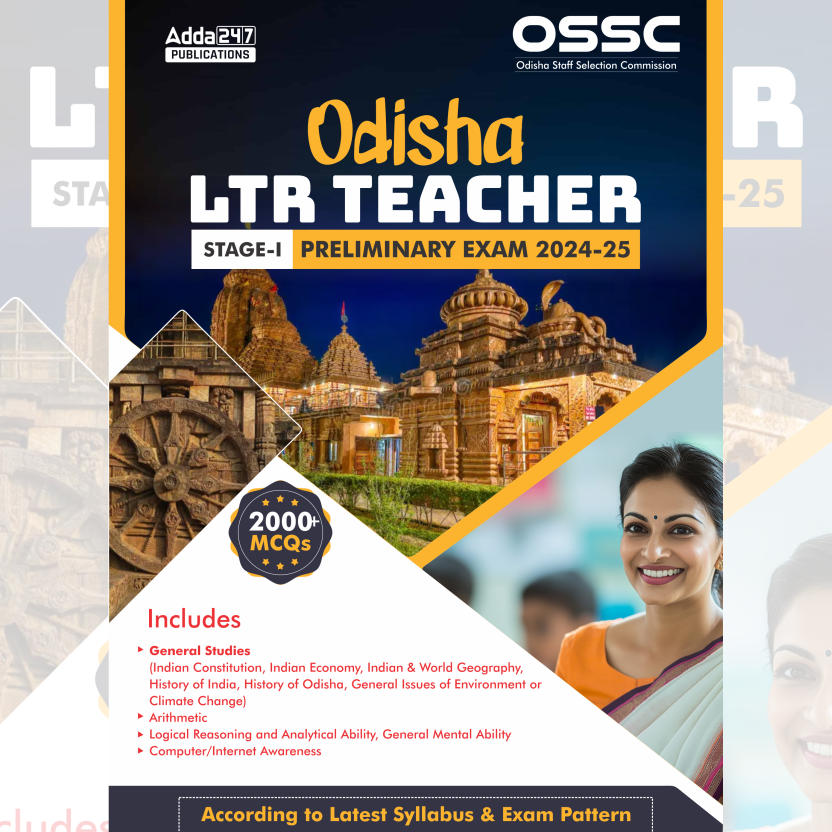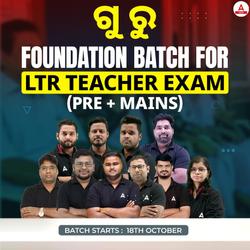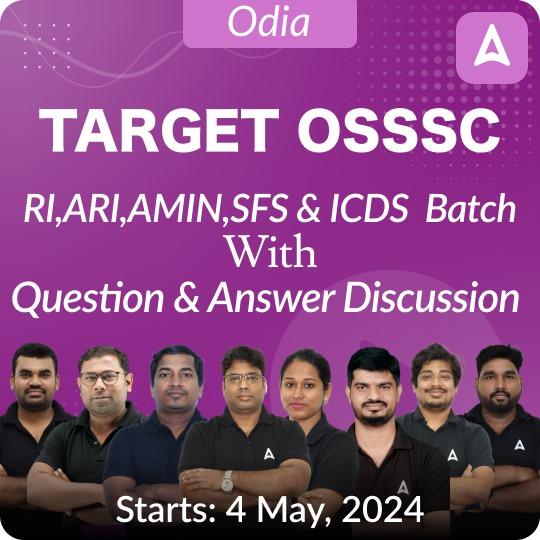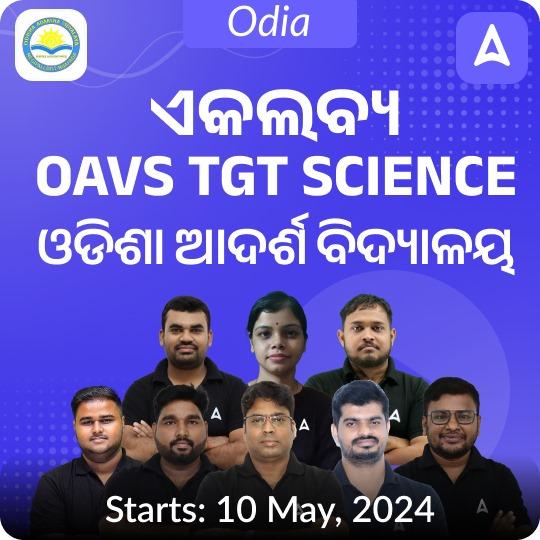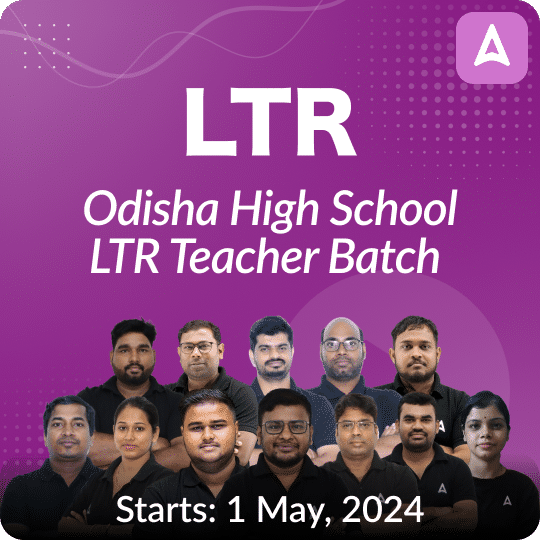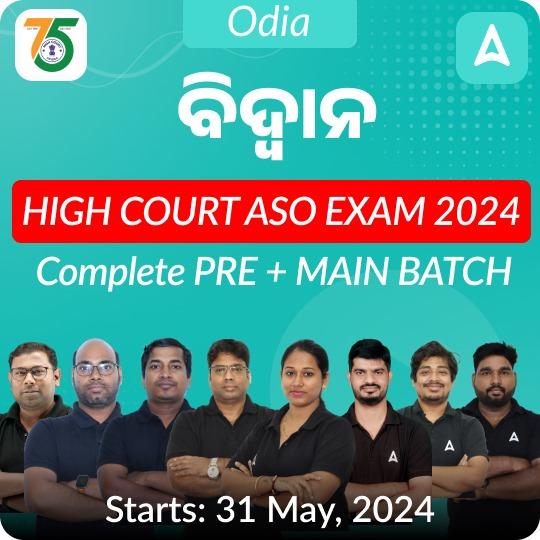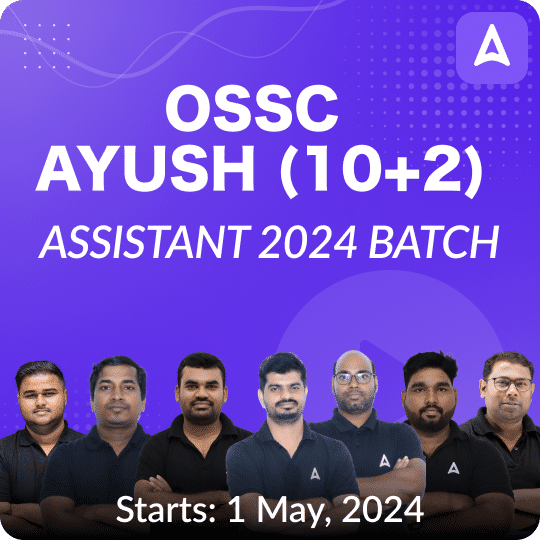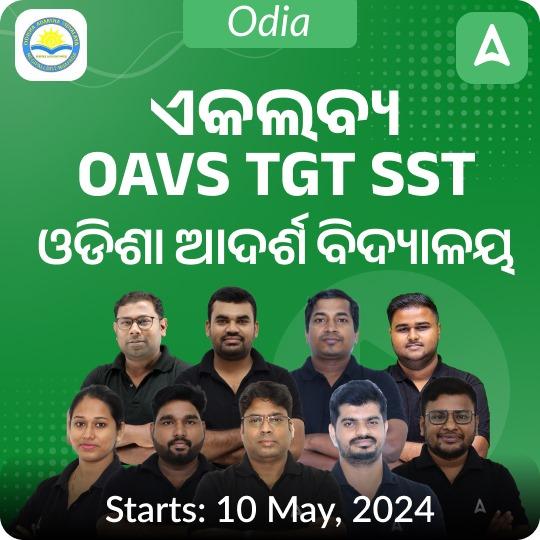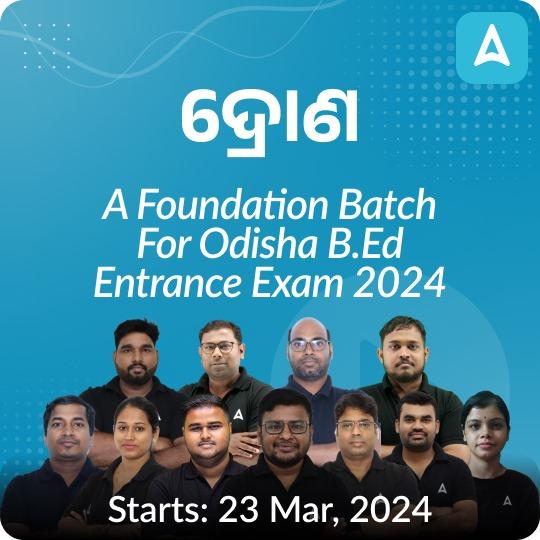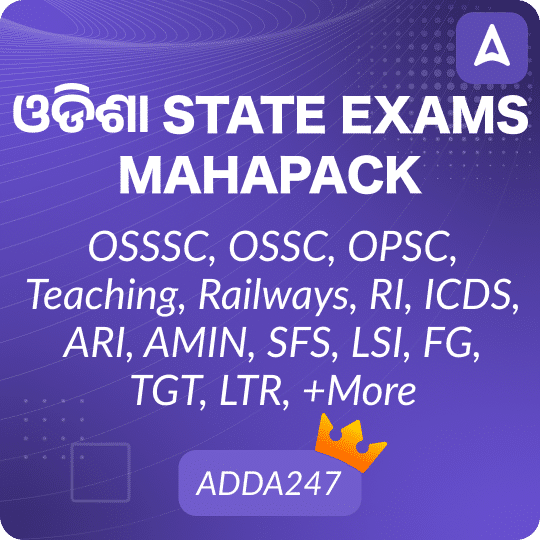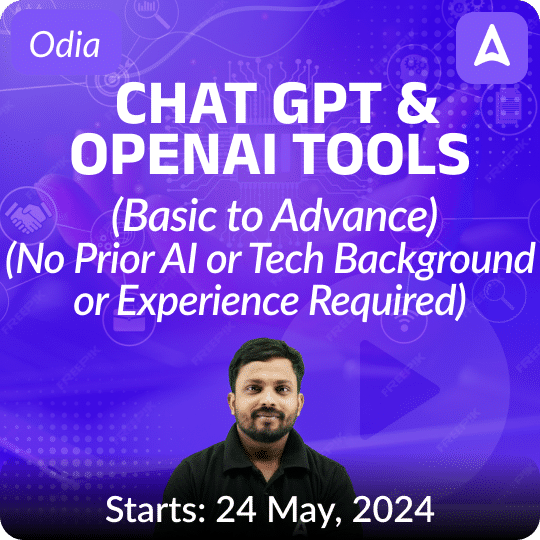The OSSC (Odisha Staff Selection Commission) LTR (Language Teacher Recruitment) exam is a competitive exam conducted to select qualified language teachers in the state of Odisha. The exam includes a General Studies section, which assesses candidates’ knowledge across various domains, including History, Geography, Polity, Economics, General Science, and Current Affairs. Here’s a selection of the top 30 Multiple-Choice Questions (MCQs) that will aid aspirants in their preparation for the OSSC LTR Teacher examination.
Top 30 General Studies MCQs For OSSC LTR Teacher
- The Public Service Commissions in the Indian Constitution are influenced by:
(a) USA
(b) UK
(c) Government of India Act 1935
(d) Canada
Ans: (c) Government of India Act 1935 - The Office of Governor in the Indian Constitution is influenced by:
(a) USA
(b) UK
(c) Government of India Act 1935
(d) Canada
Ans: (c) Government of India Act 1935 - The Judiciary in the Indian Constitution is influenced by:
(a) USA
(b) UK
(c) Government of India Act 1935
(d) Canada
Ans: (c) Government of India Act 1935 - The Administrative Details in the Indian Constitution are influenced by:
(a) USA
(b) UK
(c) Government of India Act 1935
(d) Canada
Ans: (c) Government of India Act 1935 - The provision for equal protection under the law in the Indian Constitution is influenced by:
(a) USA
(b) UK
(c) Canada
(d) Australia
Ans: (a) USA - The President of India as the Supreme Commander of the Armed Forces is influenced by:
(a) USA
(b) UK
(c) Canada
(d) Ireland
Ans: (a) USA - The World Book and Copyright Day is observed on:
(a) 22nd April
(b) 23rd April
(c) 24th April
(d) 25th April
Ans: (b) 23rd April - The World Malala Day is observed on:
(a) 11th July
(b) 12th July
(c) 13th July
(d) 14th July
Ans: (b) 12th July - Nelson Mandela International Day is observed on:
(a) 17th July
(b) 18th July
(c) 19th July
(d) 20th July
Ans: (b) 18th July - The International Day of World’s Indigenous People is observed on:
(a) 8th August
(b) 9th August
(c) 10th August
(d) 11th August
Ans: (b) 9th August - The International Labour Organisation (ILO) has its headquarters in:
(a) Geneva, Switzerland
(b) New York, USA
(c) Washington DC, United States
(d) Paris, France
Ans: (a) Geneva, Switzerland - The Ramsar site Renuka Lake is located in which state?
(a) Haryana
(b) Himachal Pradesh
(c) Assam
(d) Bihar
Ans: (b) Himachal Pradesh - The headquarters of the United Nations Educational, Scientific and Cultural Organisation (UNESCO) is located in:
(a) Geneva, Switzerland
(b) New York, USA
(c) Paris, France
(d) Vienna, Austria
Ans: (c) Paris, France - Khijadiya, a Ramsar site, is located in which state?
(a) Gujarat
(b) Haryana
(c) Himachal Pradesh
(d) Assam
Ans: (a) Gujarat - The World Trade Organisation (WTO) has its headquarters in:
(a) Geneva, Switzerland
(b) New York, USA
(c) Washington DC, United States
(d) Paris, France
Ans: (a) Geneva, Switzerland - Which weather phenomenon is rainfall in India not associated with?(A) Orography
(B) Convection
(C) Cyclones
(D) Anticyclones
Answer: (D)
Explanation: Rainfall in India is not associated with anticyclones, which are high-pressure systems where winds move outward.
- Which part of India receives rainfall from both the South-West and North-West monsoons?(A) Tamil Nadu
(B) Odisha
(C) Lakshadweep Islands
(D) Andaman and Nicobar Islands
Answer: D
Explanation: Andaman and Nicobar Islands receive rainfall from both the South-West and North-West monsoons, as they are located in a region influenced by both monsoon systems.
- Which type of rainfall occurs mainly in the afternoon in equatorial regions?(A) Cyclonic
(B) Convectional
(C) Orographic
(D) Frontal
Answer: B
Explanation: Convectional rainfall occurs mainly in the afternoon in equatorial regions when warm air rises, cools, and condenses into precipitation.
- What causes the formation of cumulus or cumulonimbus clouds associated with convectional rainfall?(A) Warm air sinking
(B) Cold air rising
(C) Warm air rising
(D) Stable atmospheric conditions
Answer: C
Explanation: Cumulus or cumulonimbus clouds form due to warm air rising and expanding, leading to convectional rainfall.
- Who is known as the Father of the Indian Constitution?
(a) Jawaharlal Nehru
(b) Dr. B.R. Ambedkar
(c) Mahatma Gandhi
(d) Sardar Vallabhbhai Patel
Answer: (b) Dr. B.R. Ambedkar - Which planet is known as the Red Planet?
(a) Venus
(b) Mars
(c) Jupiter
(d) Saturn
Answer: (b) Mars - The headquarters of UNESCO is located in which city?
(a) Paris
(b) Geneva
(c) New York
(d) Rome
Answer: (a) Paris, France - Who is the author of the book “The God of Small Things”? (a) Salman Rushdie
(b) Arundhati Roy
(c) Jhumpa Lahiri
(d) Vikram Seth
Answer: b) Arundhati Roy - What does the term “Habeas Corpus” mean?
(a) To have the right to a fair trial
(b) To have the body of
(c) To have access to legal counsel
(d) To have the right to remain silent
Answer: (b) To have the body of - Which court issues the writ of Habeas Corpus?
(a) District Court
(b) High Court
(c) Supreme Court
(d) Lower Court
Answer: (b) High Court - Habeas Corpus is used to enforce which fundamental right?
(a) Right to Equality
(b) Right to Freedom of Speech and Expression
(c) Right to Liberty
(d) Right to Property
Answer: (c) Right to Liberty - Who can file a petition for Habeas Corpus?
(a) Only the person detained
(b) Any citizen
(c) Only lawyers
(d) Only government officials
Answer: (b) Any citizen - In which article of the Indian Constitution is the provision for Habeas Corpus mentioned?
(a) Article 32
(b) Article 21
(c) Article 14
(d) Article 19
Answer: (a) Article 32 - What does the court examine in a Habeas Corpus petition?
(a) The legality of detention
(b) The guilt or innocence of the detained person
(c) The financial status of the detained person
(d) The educational background of the detained person
Answer: (a) The legality of detention

